About the Video Project
Our experiences, backgrounds
Talking about these concepts can be an uncomfortable and vulnerable conversation, so I want to thank all 19 video participants for their time. Learn more about each of the participants and why they were chosen for interviews below. Watch each of the videos to hear more about their personal experiences and how they believe their identities intersect with these concepts.
Before proceeding: Please keep in mind videos include survivor stories and discuss topics that may be triggering for you or others around you. Please do not feel obligated to watch if you are not comfortable doing so.
*Note: These interviews were filmed in October, November, and December of 2018. This video series was modeled after the Seattle Times project “Under Our Skin.” One of the participants was a recent UA graduate at the time of her interview, but remained at the university for a research job.
Meet the 19 Participants
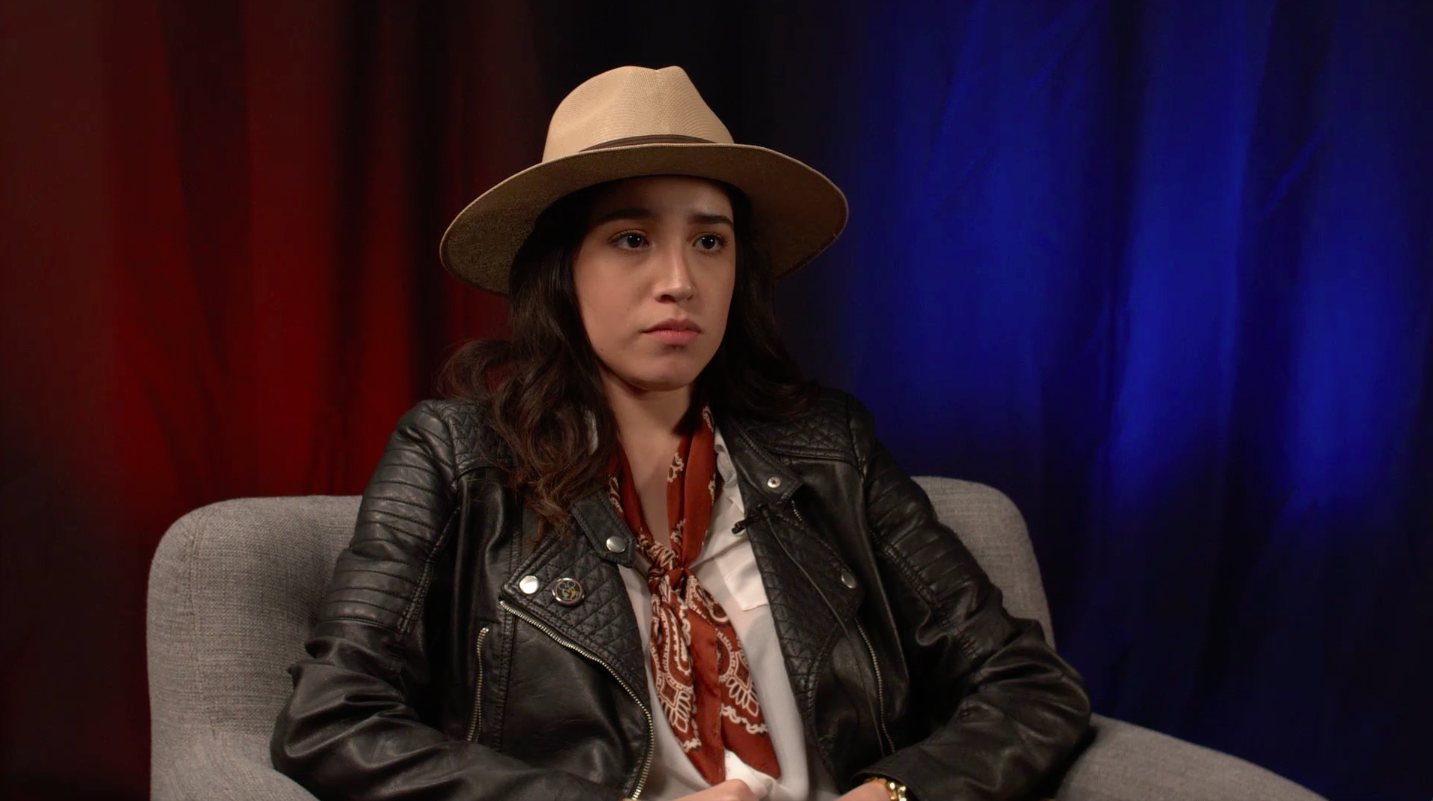
Aysia Arias
Arias is a peer educator for SPEAC, Students Promoting Empowerment
Watch Arias in: Consent, Harassment, Me Too, Toxic Masculinity, Victim Blaming & Shaming
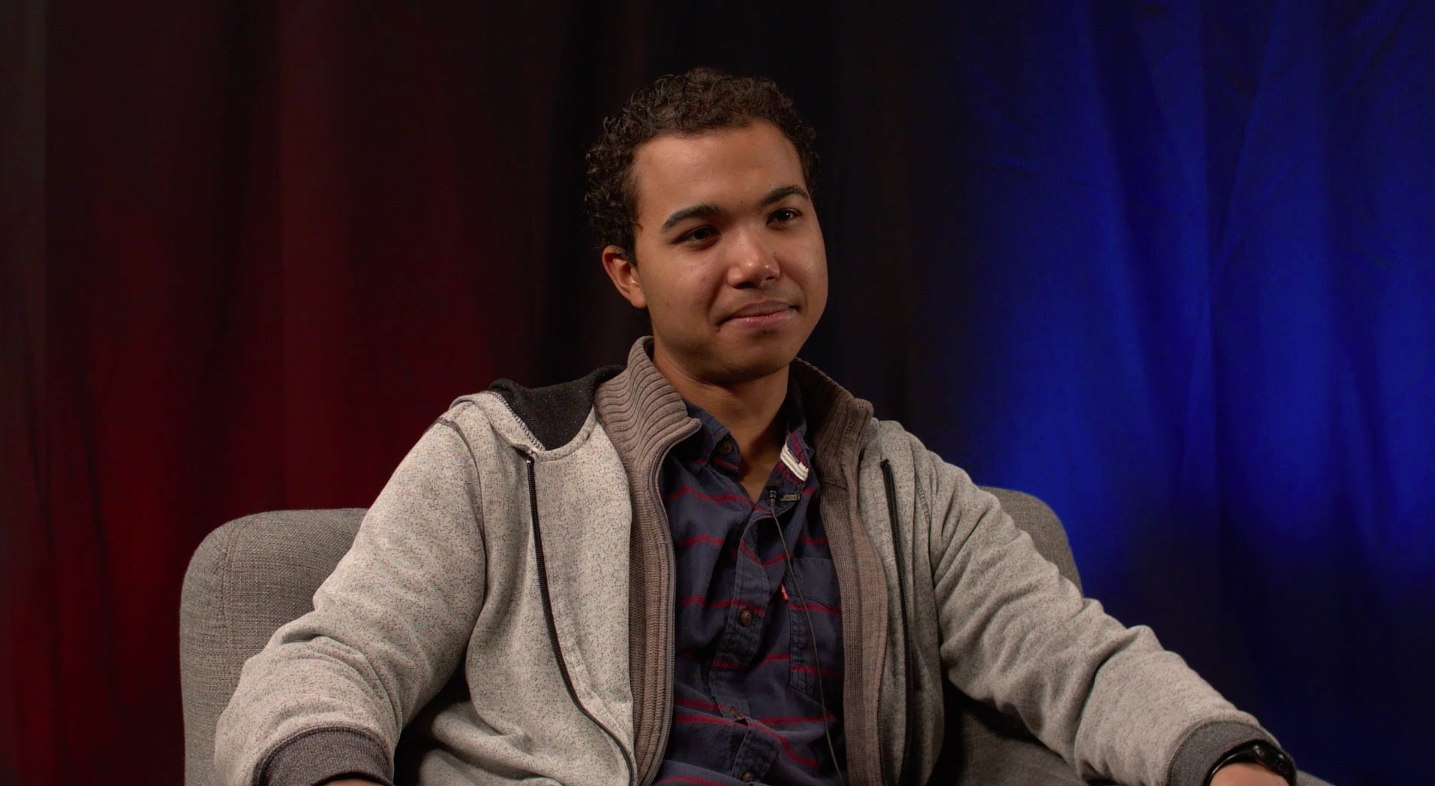
Milo Quinlan
Quinlan is the director of community outreach for the Black Student Union at UA, and a junior studying accounting and Management Information Systems. He said the university needs to be “completely transparent from start to finish, for reporting any incidents of sexual harassment, sexual violence, discrimination, bias, and it needs to be for students, faculty and staff.”
Watch Quinlan in: Consent, Harassment, Me Too, Toxic Masculinity, Victim Blaming & Shaming
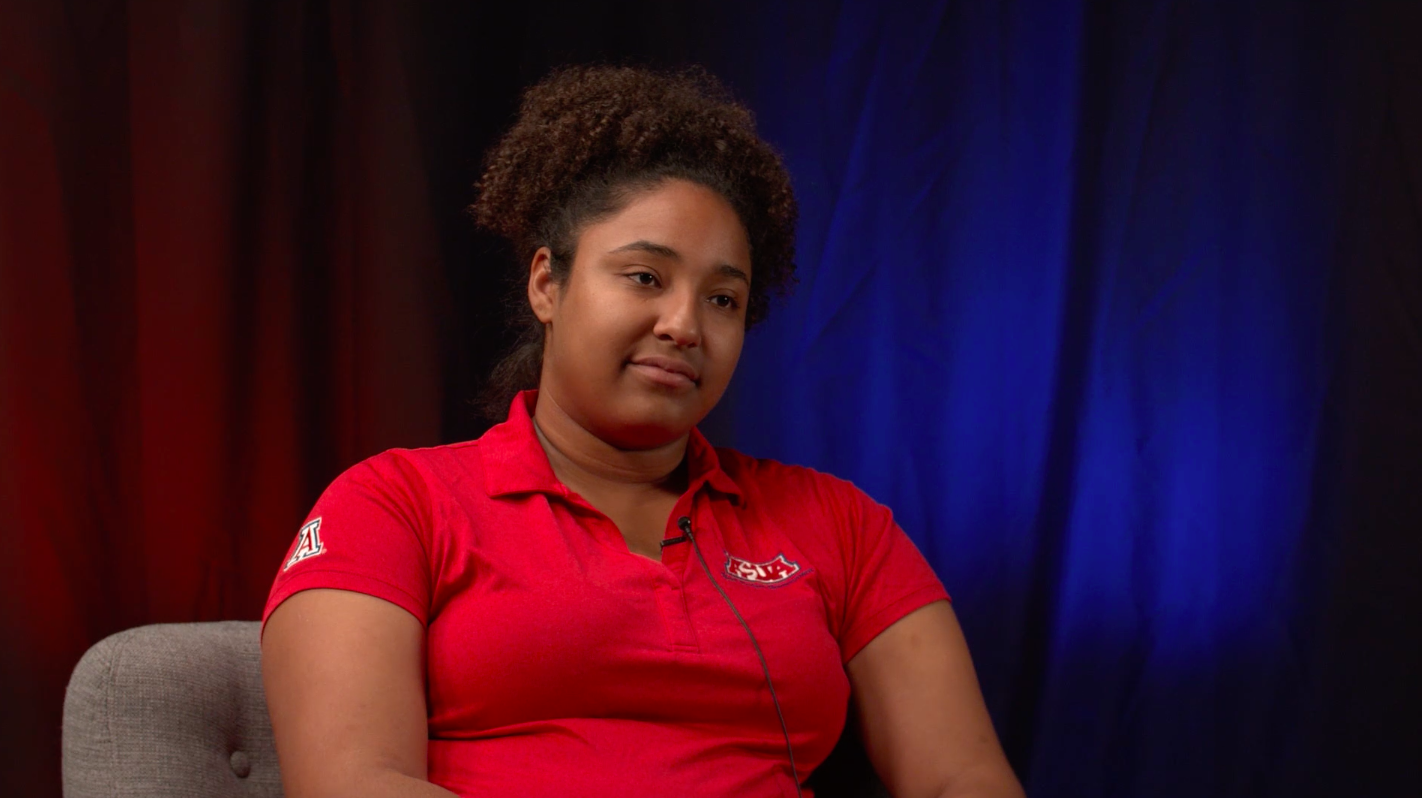
Natalynn Masters
Masters is the 2018-2019 student body president at UA, and
Watch Masters in: Consent, Harassment, Me Too, Toxic Masculinity, Victim Blaming & Shaming
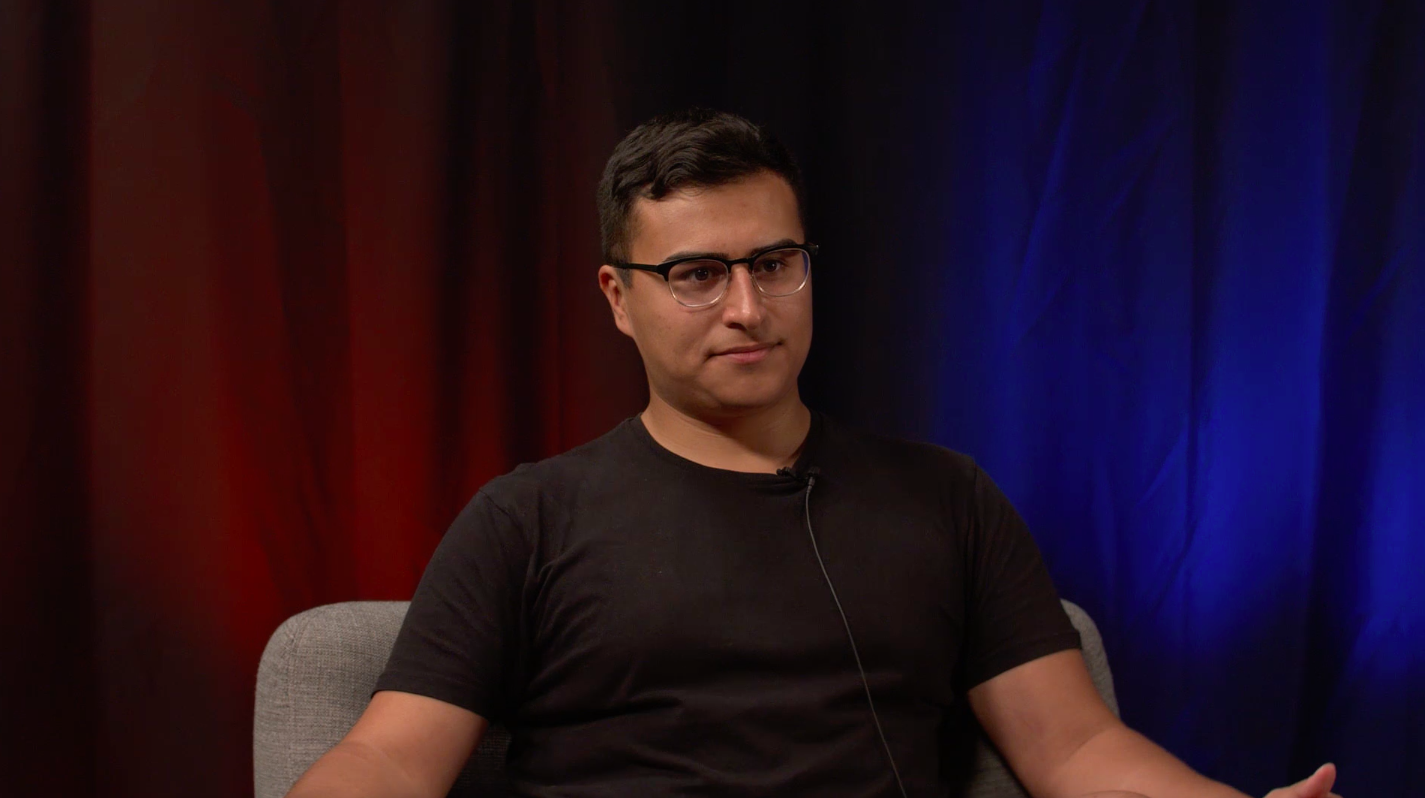
Rocque Perez
Perez is a sophomore studying law and political science. He is a student body senator with the Associated Students of the University of Arizona (ASUA). He said overall, he thinks the university is working hard to address these issues.
Watch Perez in: Consent, Harassment, Me Too, Toxic Masculinity, Victim Blaming & Shaming
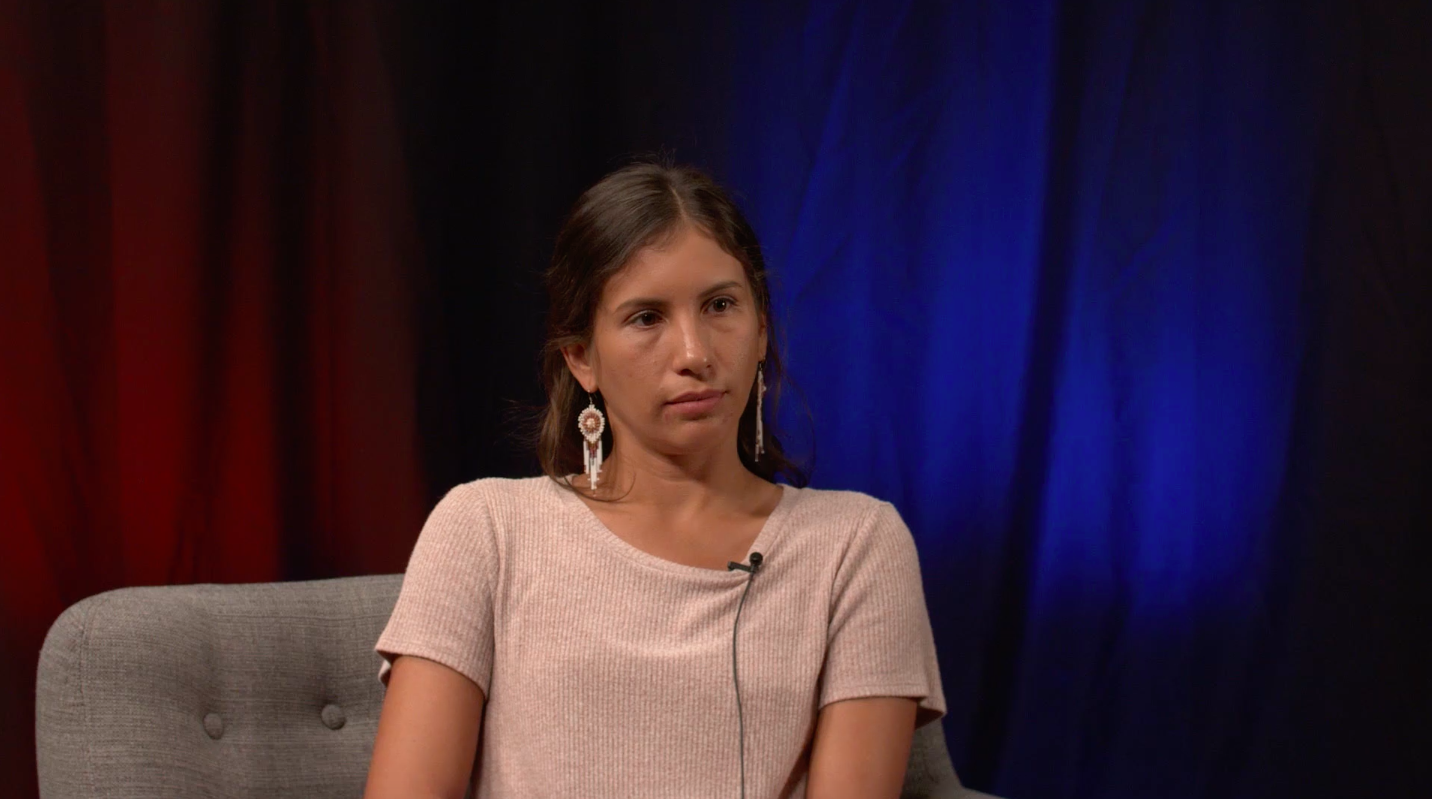
Ashleigh Thompson
Thompson is a Ph.D. student in anthropology (archaeology) with a graduate minor in American Indian studies. She is a member of the Red Lake Ojibwe nation, the secretary of the American Indian Studies Graduate Student Council, and a teaching assistant. She said there should be campus-wide educational components for teaching about sexual assault and harassment that engage not only undergraduates, but graduate students, faculty and staff too.
Watch Thompson in: Consent, Harassment, Me Too, Toxic Masculinity, Victim Blaming & Shaming
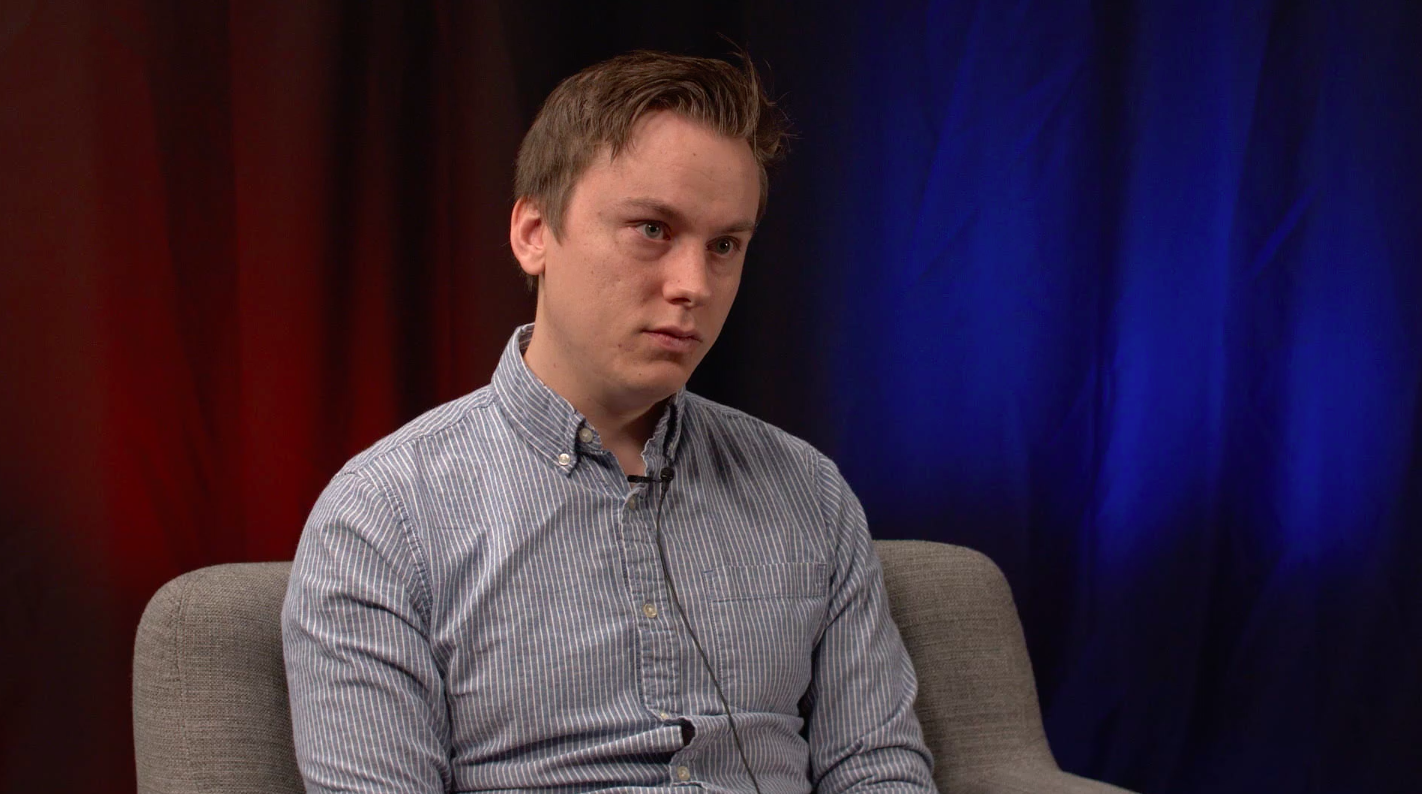
Joshua Paree
Paree is a second-year medical school student at UA and the president of the American Medical Student Association club. He said colleges should be nourishing open dialogues about these topics.
Watch Paree in: Consent, Harassment, Me Too, Toxic Masculinity, Victim Blaming & Shaming
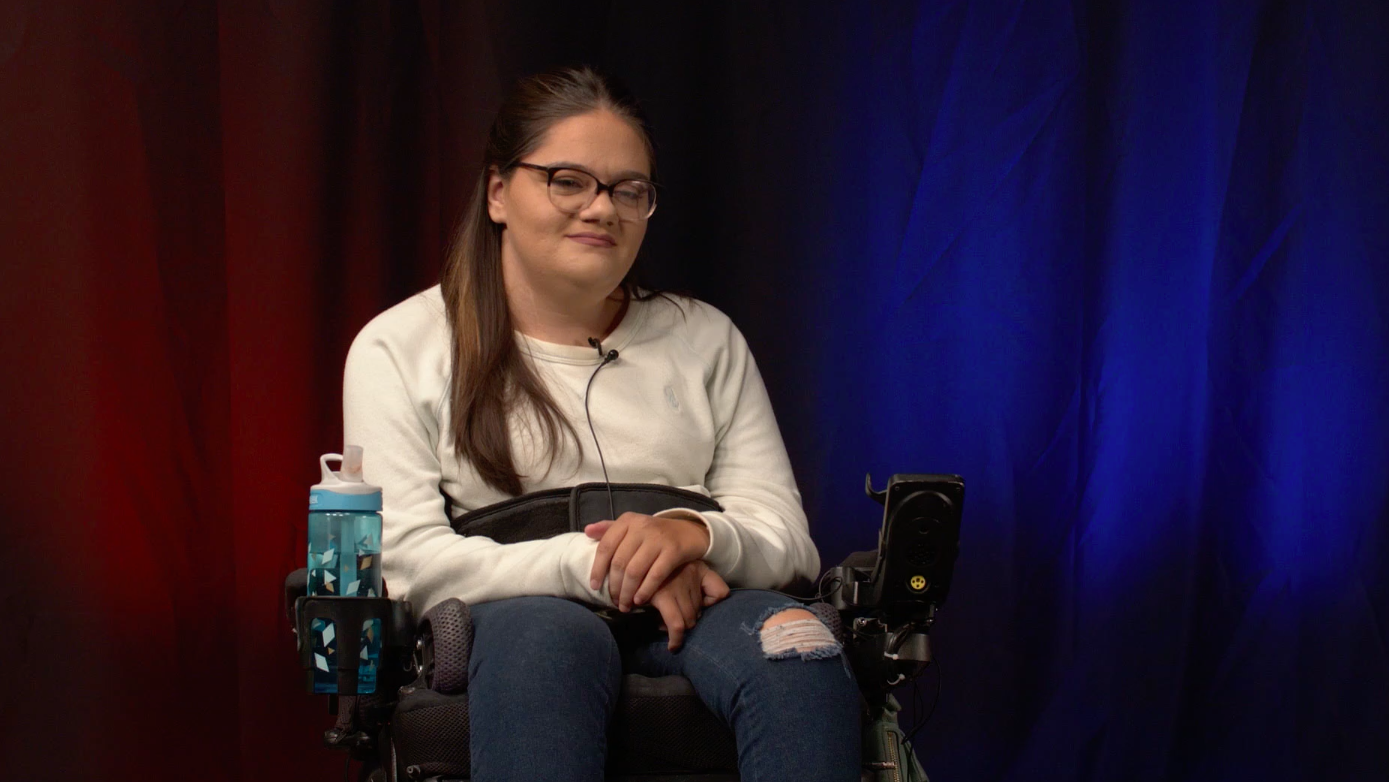
Erin Thomson
Thomson is a senior studying journalism and sociology.
“Especially right now with the Me Too movement and everything, I think it’s really important to share experiences, especially being a woman – and not saying that men’s experience doesn’t matter – but I think, I just want to represent women and especially disabled women,” she said. “And say that, you know, this really needs to stop. We need to figure this out and I think men and women alike need to realize that this is an issue that we need to tackle.”
Watch Thomson in: Consent, Harassment, Me Too, Toxic Masculinty, Victim Blaming & Shaming
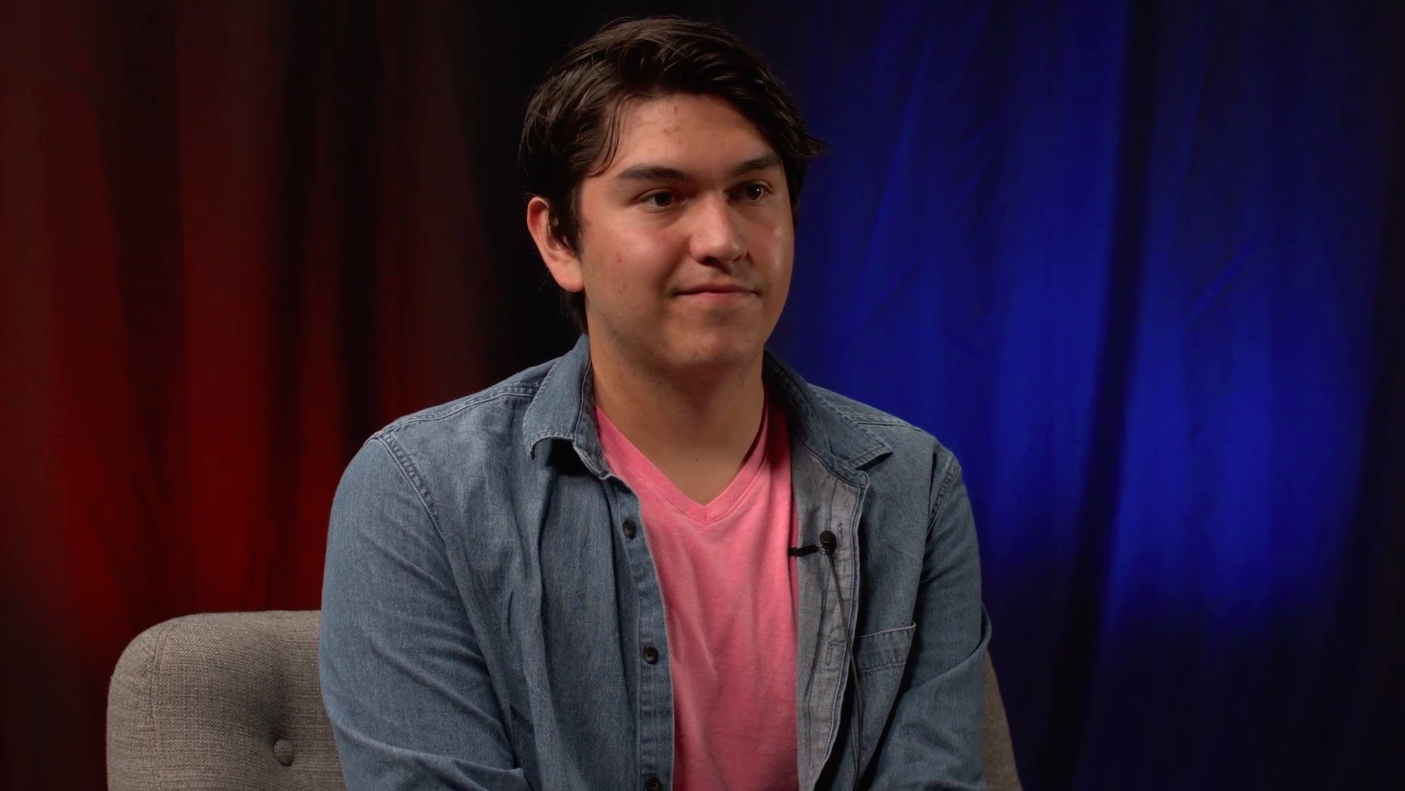
Tyler Rodriquez
Rodriquez is a peer educator in SPEAC, Students Promoting Empowerment and Consent, at UA’s Women and Gender Resource Center. He is a junior studying veterinary science. He said he would gauge UA “somewhere in the middle” in how it handles sexual assault education, but there is “a lot of foundational work being done that can lead to bigger change.”
Watch Rodriquez in: Consent, Harassment, Me Too, Toxic Masculinity, Victim Blaming & Shaming
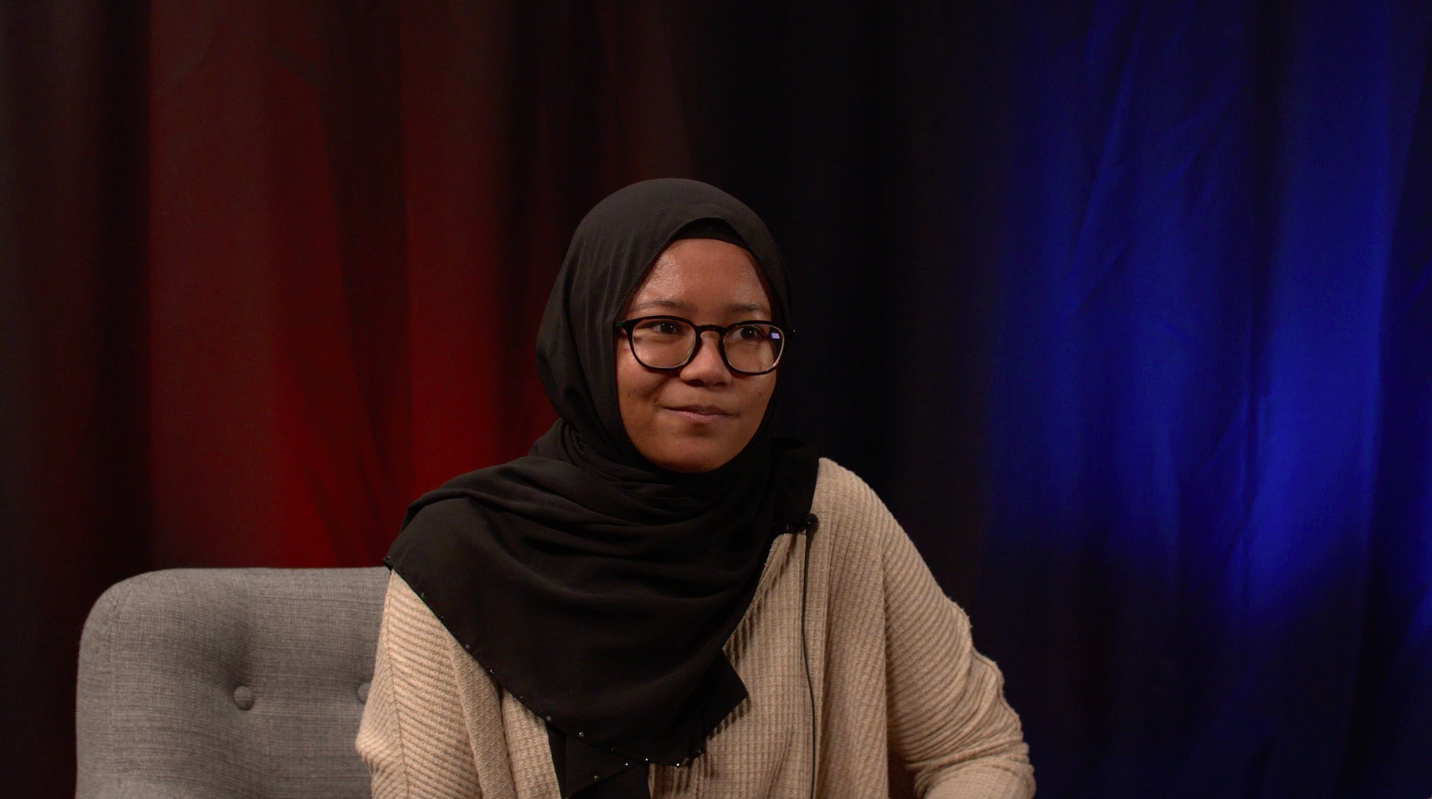
Nurhyikmah Lothfi
Lothfi graduated in spring 2018 from the University of Arizona with a degree in psychology. She is now a staff research specialist for the psychology department at the university. She said she likes to advocate for something that could be helpful for others, and students need to know more about these terms.
Watch Lothfi in: Consent, Toxic Masculinity
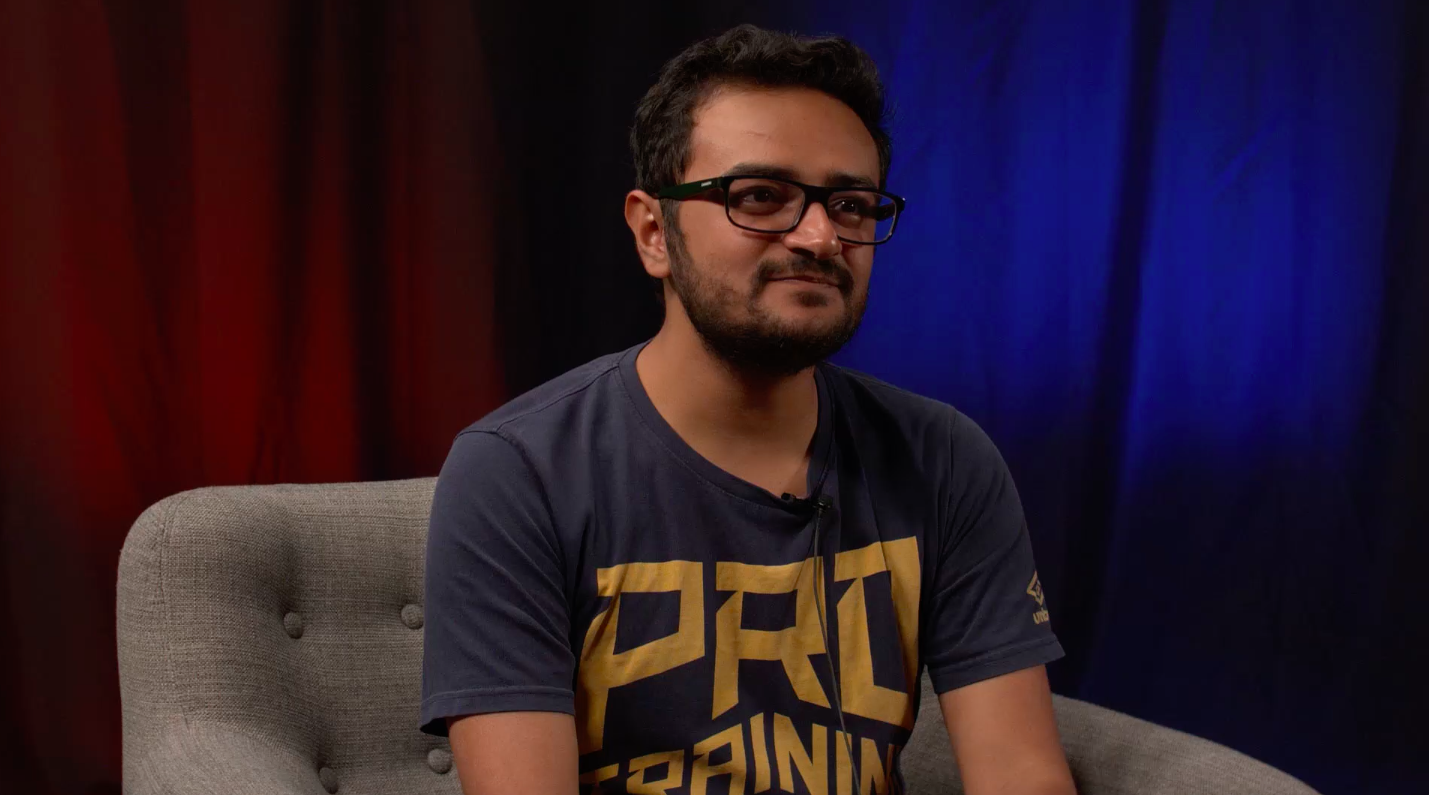
Dhruv Gajaria
Gajaria is a second-year graduate student in electrical and computer engineering. He said he thinks the power of public opinion in social media plays a significant role in the conversations surrounding these terms.
Watch Gajaria in: Consent, Me Too, Toxic Masculinity
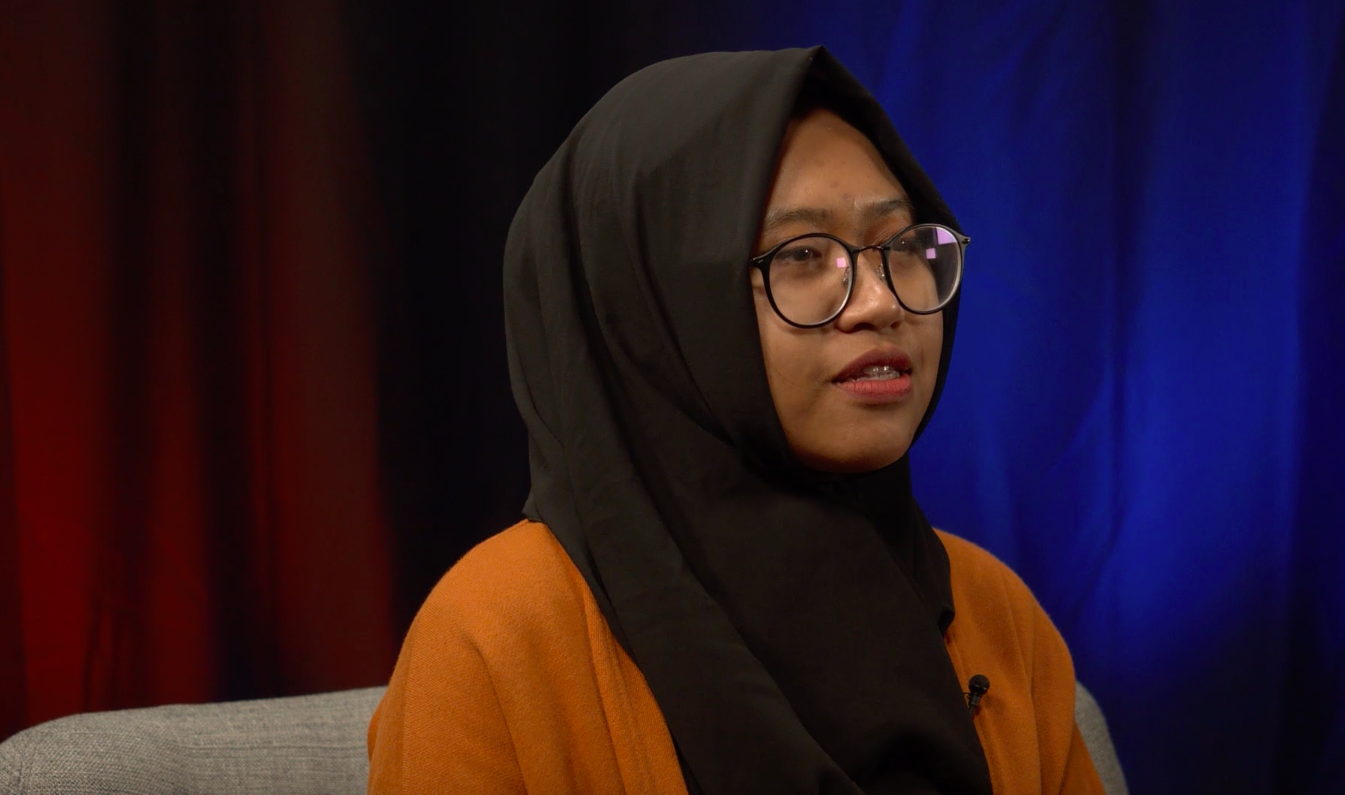
Farida Sari
Sari is a graduate student studying photonic communications engineering in the College of Optical Sciences. She said having conversations about these topics is a relatively new experience for her.
Watch Sari in: Consent, Toxic Masculinity
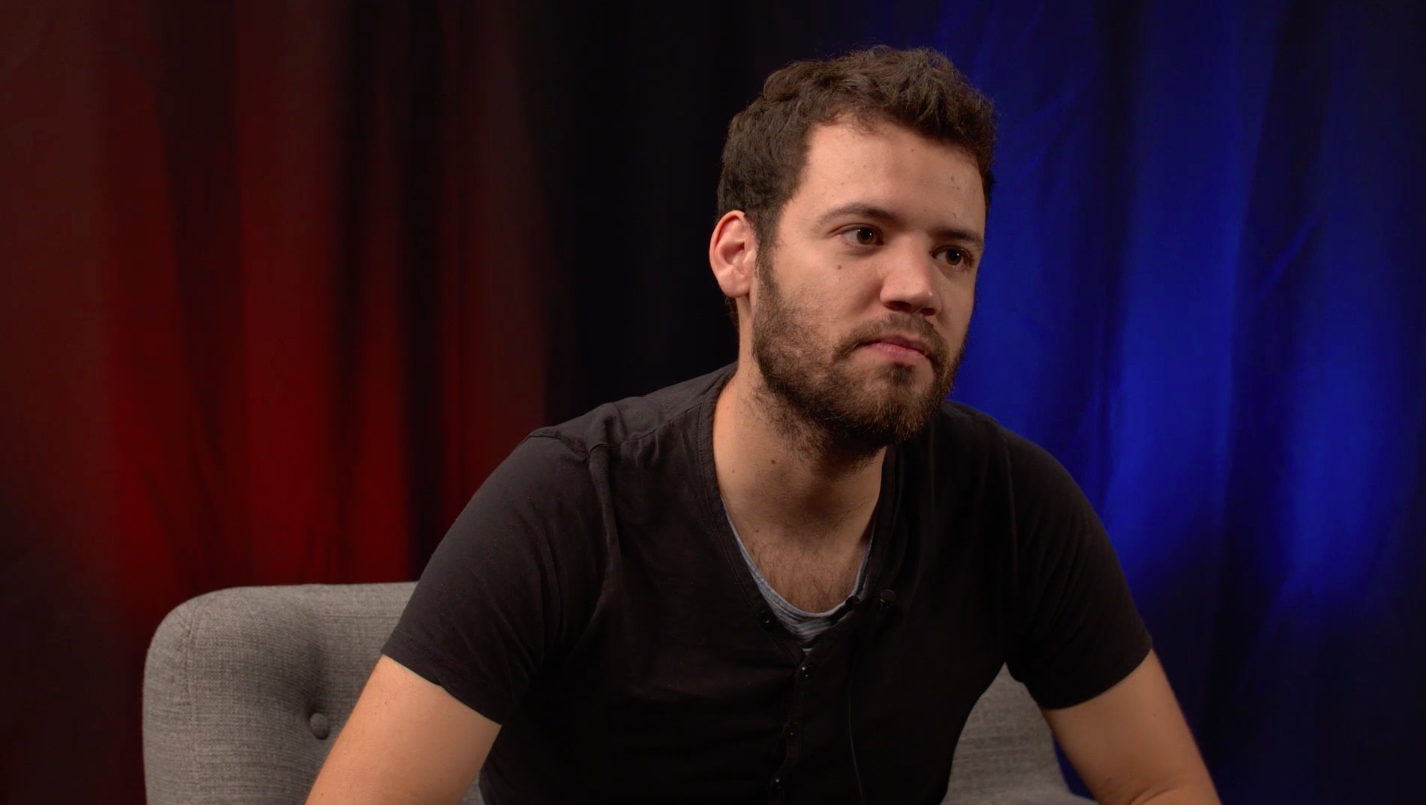
Aria Paco
Paco is a second-year Ph.D. philosophy student. He said sometimes initiatives in schools will only affect people who already cared about the issues, so schools should try different approaches that appeal to a larger population of students.
Watch Paco in: Consent, Harassment, Me Too, Toxic Masculinity, Victim Blaming & Shaming
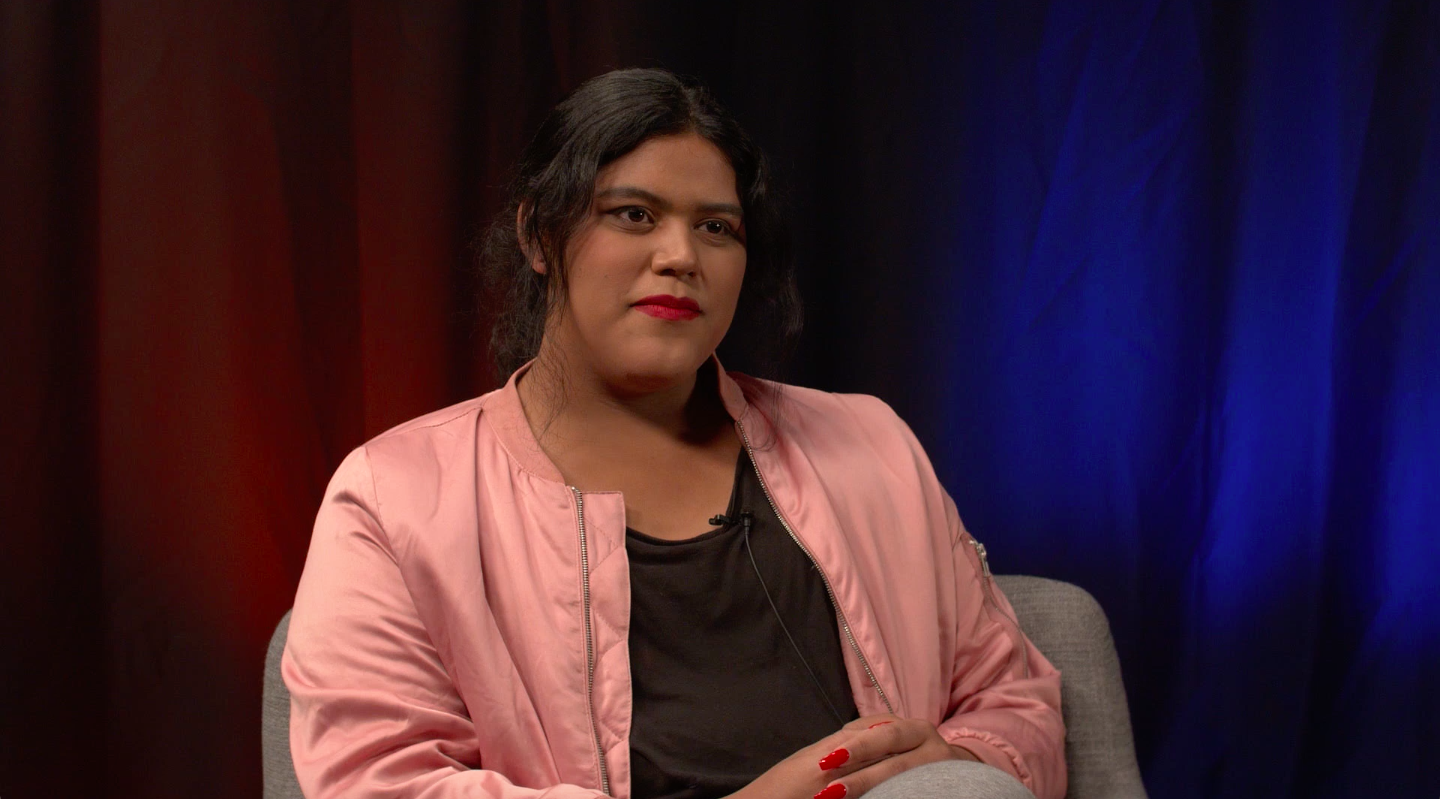
Arielle Sarai Avalos
Avalos is a senior at UA studying theater arts and music.
“I think it’s something that we all need to talk about and we need to stop putting past us because, I mean, this is happening for all of existence,” she said. “It’s something that needs to be talked about, needs to be discussed, and needs to stop.”
Watch Avalos
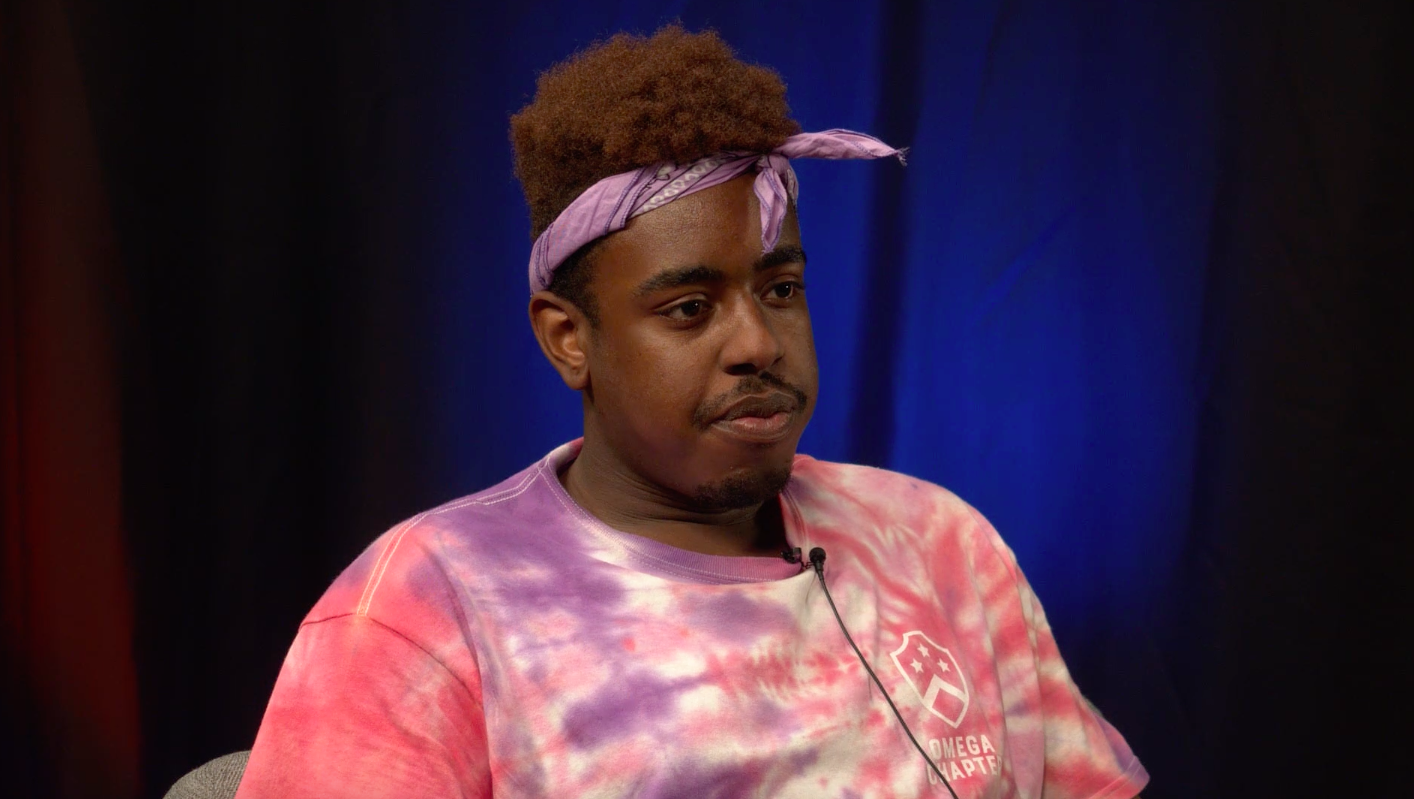
Juwan Chase
Chase is a student worker in the LGBTQ Affairs Center, a resident assistant, and a member of the Delta Lambda Phi fraternity. He is a senior studying theater arts and creative writing.
He said educating people on these issues is important because “if it doesn’t directly deal with them, they usually don’t know about it.”
Watch Chase
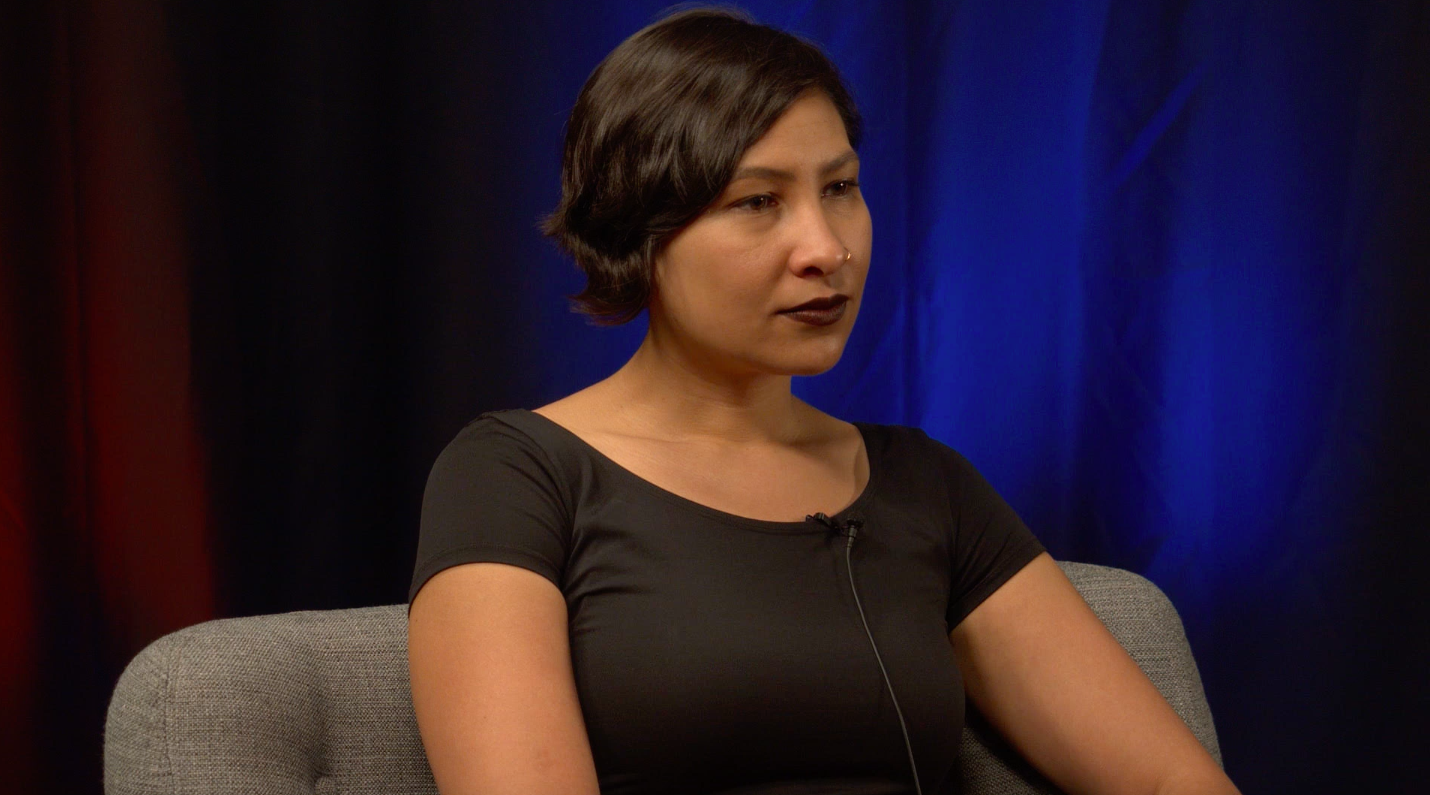
Monika Damron
Damron is a graduate student in the school of journalism and a member of the Hualapai and Navajo nations. She said schools should make sure their environments are welcoming to all students and can be a place where students feel safe and comfortable.
Watch Damron in: Consent, Harassment, Me Too, Toxic Masculinity, Victim Blaming & Shaming
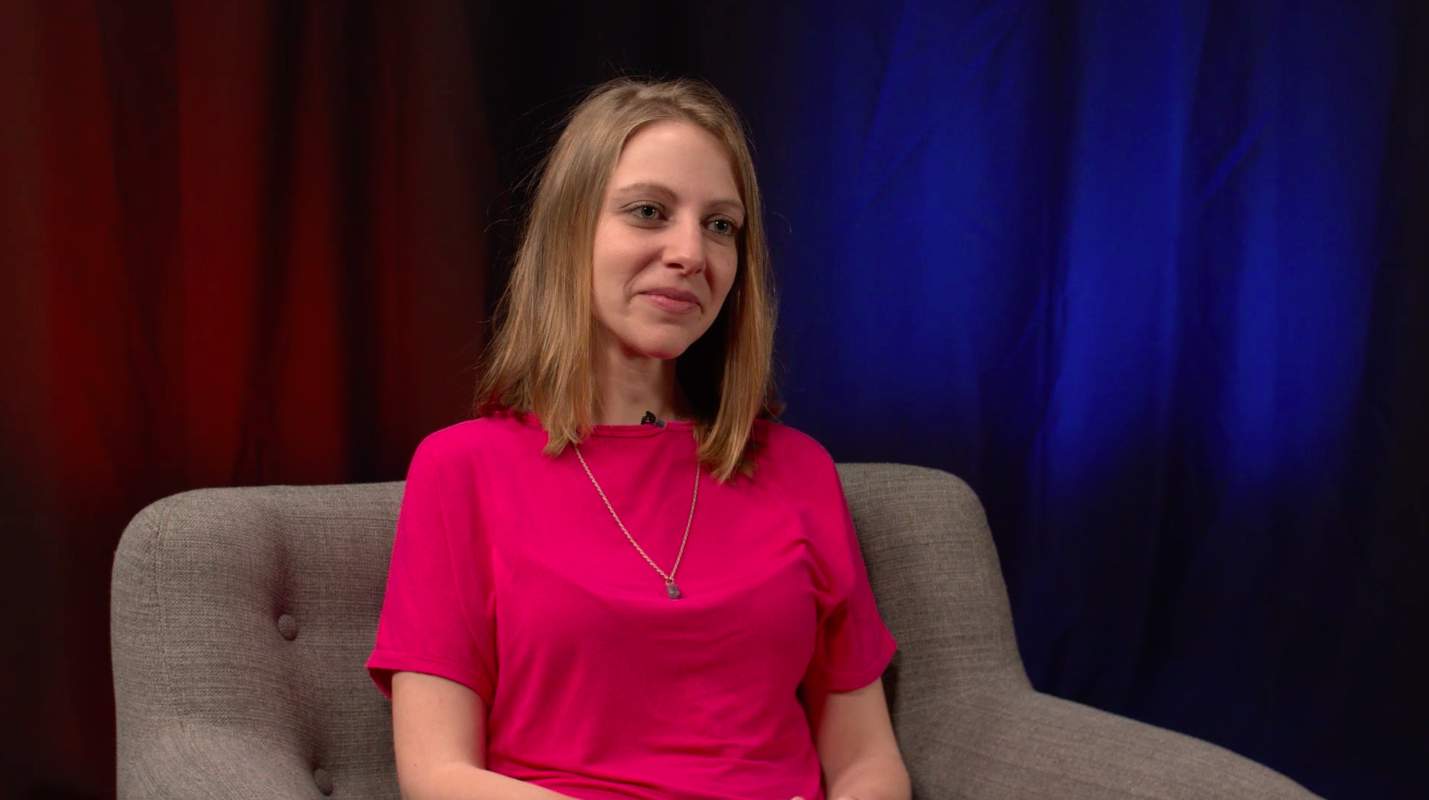
Cassandra Peel
Peel is a doctoral candidate in the Center for the Study of Higher Education. She directs volunteer resources and retail operations for Banner University Medical Center.
“I think it’s really important given the climate that we’re in to have these conversations, and understand and unpack how people are feeling,” she said. “Understanding how people are feeling leads to a better climate and the more that we know, the more we’re able to understand and relate to one another.”
Watch Peel in: Consent, Harassment, Me Too, Toxic Masculinity, Victim Blaming & Shaming
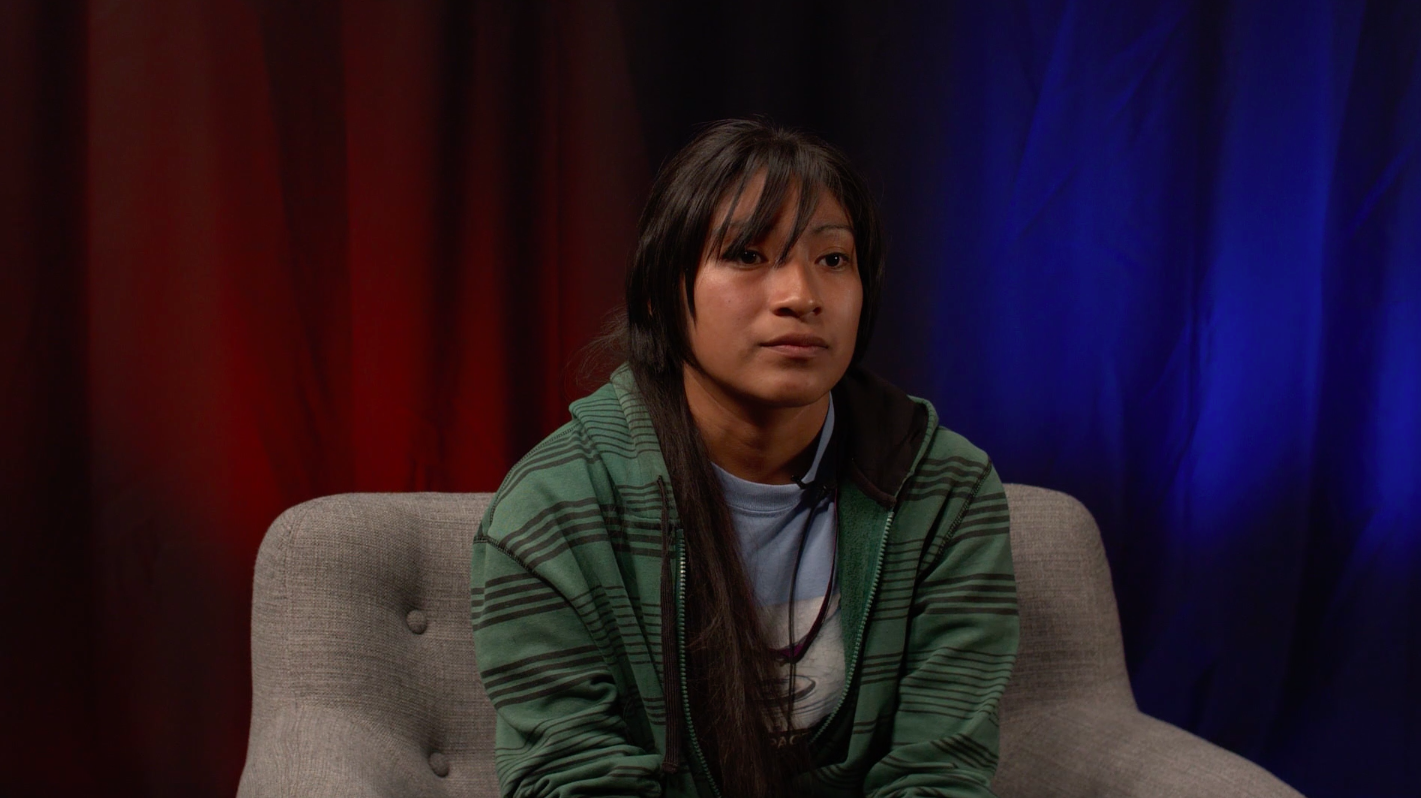
Katrina Antone
Antone is a sophomore studying mathematics and film and television, and president of the Tohono O’odham Student Association at UA. She said she wanted to participate because “it’s important for people to speak out on their opinion and hear other people’s voices.”
Watch Antone in: Toxic Masculinity
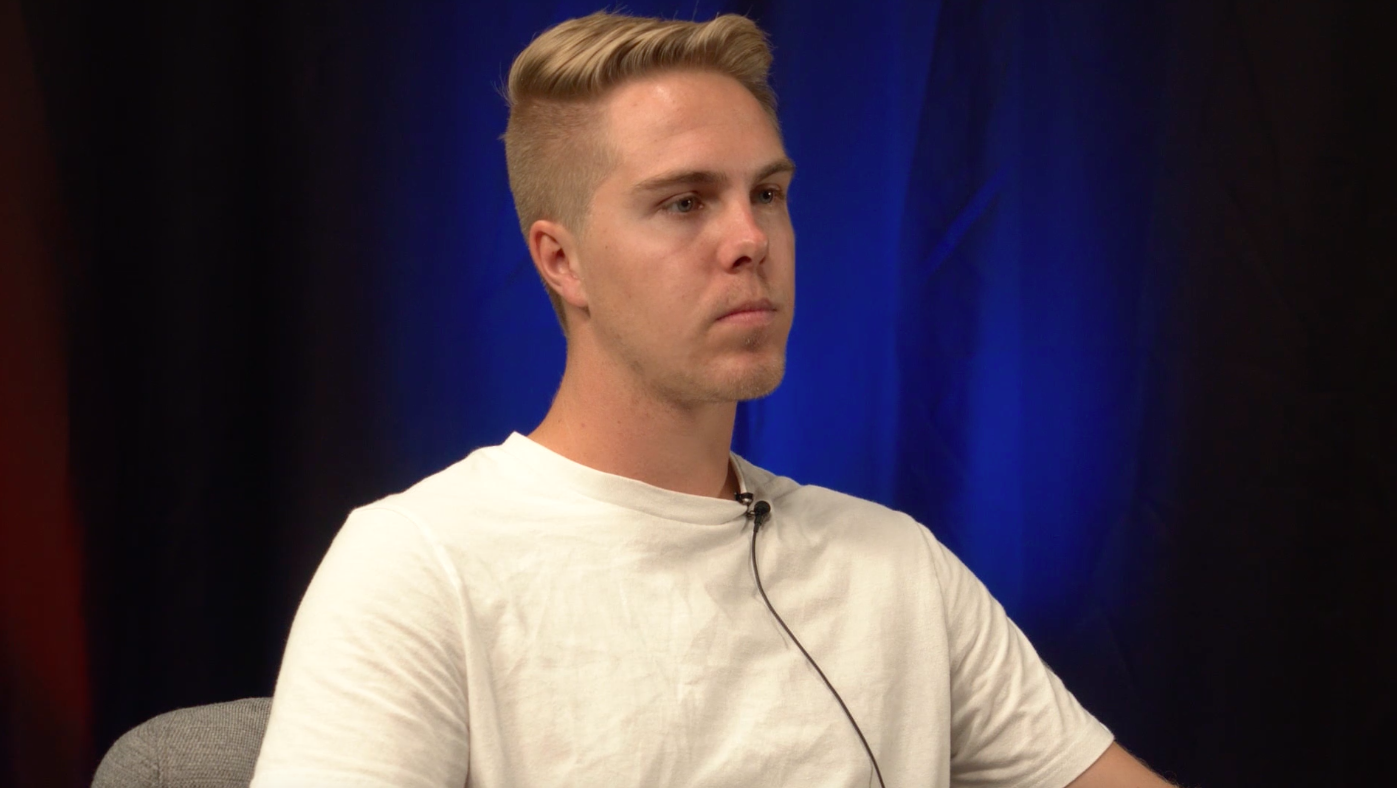
Kyle Melnick
Melnick is the executive vice president for the Interfraternity Council (IFC) at UA, a member of the Kappa Alpha Order fraternity, and a senior studying business management.
“I think that one of our big goals, being a Greek man is that, I want to make sure that people feel safe on this campus, especially a woman and people who may feel not safe on this campus,” he said.
Watch Melnick in: Consent, Harassment, Me Too, Toxic Masculinity, Victim Blaming & Shaming
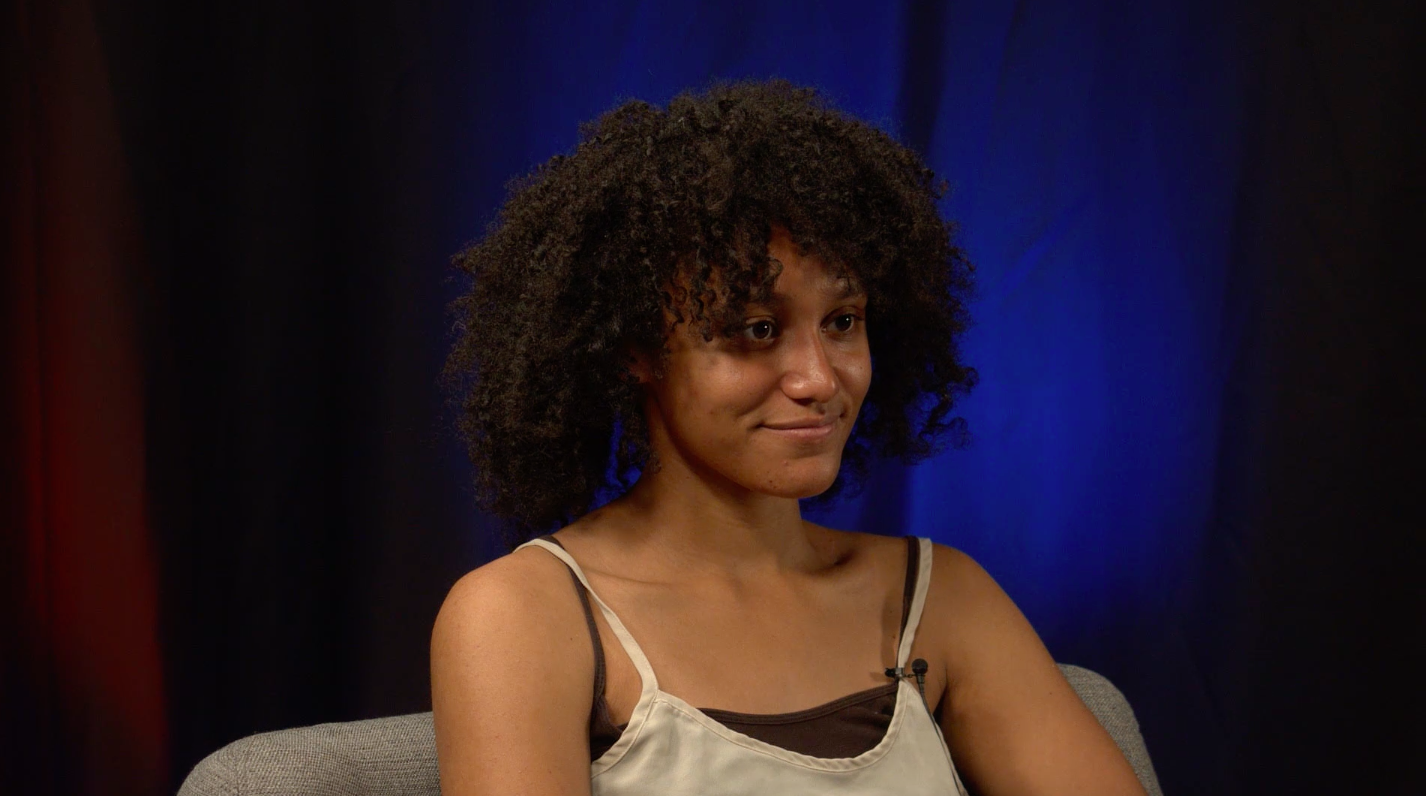
Shelby Young
Young is a co-executive director for the Coalition of Black Organizations (COBO) at UA. She is a senior studying microbiology and Africana Studies. She said there is still a stigma when addressing sexual assault that prevents students from talking about it as often as necessary.
Watch Young in: Consent, Harassment, Me Too, Toxic Masculinity, Victim Blaming & Shaming
Videos
Victim Blaming & Shaming
Harassment
Me Too
Toxic Masculinity
Consent
theproveitproject.com
© Jessica Suriano 2019
jessicasuriano.com